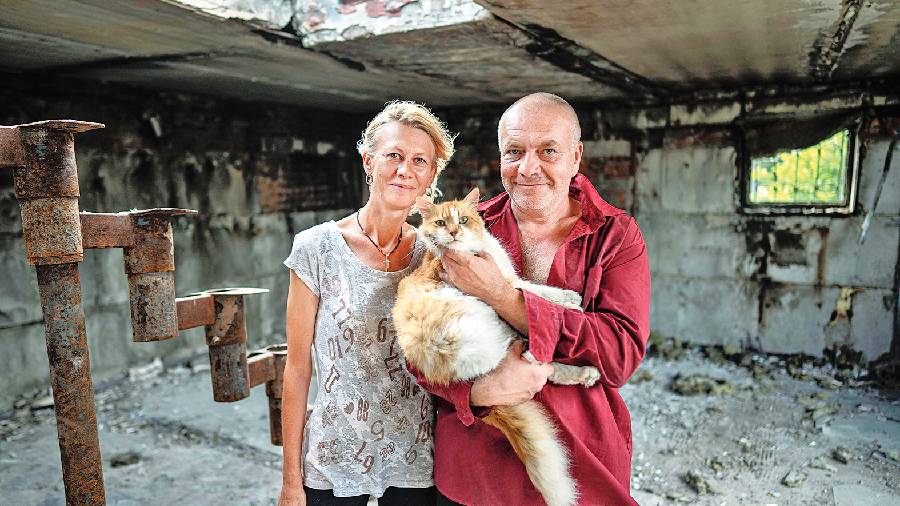Artillery fire resumed on Sunday from the direction of a nuclear power plant in southern Ukraine, with shells streaking into a town from which the Ukrainian army has been unable to return fire, for fear of causing a meltdown or releasing radiation at the plant.
Hours before the barrages, there were reports that conditions were unravelling in and near the Zaporizhzhia Nuclear Power Plant. The flight of civilians from the area accelerated on Saturday.
The plant is the first active nuclear power plant in a combat zone. The US and the European Union have called for the formation of a demilitarised zone, as the fighting in and around the plant and its active reactors and stored nuclear waste has sparked particular worry.
Ukraine’s President, Volodymyr Zelensky, said in his nightly address on Saturday that Russia had resorted to “nuclear blackmail” at the plant, reiterating a Ukrainian analysis that Moscow was using it to slow a Ukrainian counteroffensive toward the Russian-occupied city of Kherson, where Russian conventional military defences appear increasingly wobbly.
Contrary to the fears of some analysts when Moscow launched its invasion in February, the more urgent nuclear threat in the Ukraine war now appears to be Russia damaging the civilian plant, rather than deploying its own nuclear weapons. Russia says it’s Ukrainian forces who are shelling the plant.
Engineers say that yard-thick reinforced concrete containment structures protect the reactors from even direct hits. International concern, however, has grown that shelling could spark a fire or cause other damage that would lead to a nuclear accident.
The six pressurised water reactors at the complex retain most sources of radiation, reducing risks. After pressurised water reactors failed at the Fukushima nuclear plant in Japan in 2011, Ukraine upgraded the Zaporizhzhia site to enable a shutdown even after the loss of cooling water from outside the containment structures, Dmytro Gortenko, a former plant engineer, said in an interview.
Ukraine’s military intelligence agency said that on Saturday, Russian artillery fire hit a pump, damaged a fire station and sparked fires near the plant that could not be immediately extinguished because of the damage to the fire station.
In fields near the Russian-controlled town of Enerhodar, close to the plant, long lines of cars carrying fleeing civilians formed on Saturday, according to social media posts and another former engineer at the plant who has remained in touch with local residents.
“Locals are abandoning the town,” said the former engineer, who asked to be identified by only his first name, Oleksiy, because of security concerns. Residents had been leaving for weeks, but the pace picked up after Saturday’s barrages and fires, he said.
Since Russia captured the plant in March, its army has controlled the facility, while Ukrainian engineers have continued to operate it.
Ukrainian employees are not fleeing but sending their families away, said Oleksiy, who left in June. Enerhodar was built for plant employees in the Soviet period and had a pre-war population of about 50,000.
Ukraine has accused Russia of staging artillery attacks targeting Ukrainian towns across the Dnipro River from the plant starting in July, as Ukraine’s counteroffensive in the south ramped up.
Overnight into Sunday morning, Russian howitzers fired on the Ukrainian town of Nikopol, which lies across a reservoir from the power plant, Yevheny Yetushenko, the Ukrainian military governor of the town, said in a post on Telegram.
The Ukrainian military has said it has few options for firing back. In July, it used a self-destructing drone to strike a Russian rocket artillery launcher that sat about 150 yards from one of the plant’s reactors.
New York Times News Service











